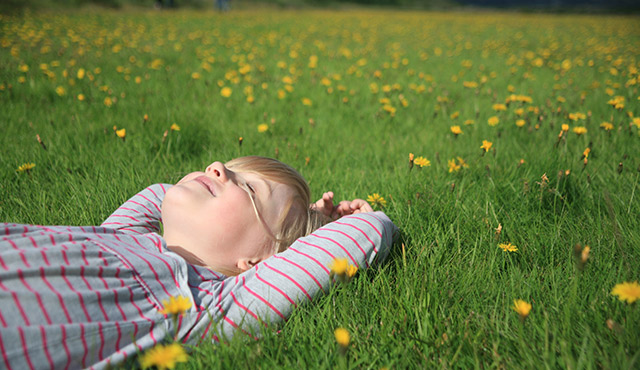Your children may need some time out from a frantic calendar of scheduled activities—hopping from advanced academic studies to competitive sports, music classes, debate clubs and other extracurricular challenges—that typically consume the after-school hours of Orange County’s students.
Psychologists and others who work with students in elementary school through high school observe with alarm the anxiety exhibited by youngsters who thirst for more of the self-directed play and hours for reflection that were typical of childhood a generation ago.
“Today there are a lot of busy working parents and they want their children also to be busy and fulfilled. We support them. But sometimes children get so busy they don’t have time to explore more of their own interests and to seek spirituality and quietness,” says Sally Todd, Associate Superintendent of Schools for the Diocese of Orange.
“As adults, we need downtime. And so do children,” Todd says.
How much programmed activity is too much depends on the child. “Some of our greatest philosophers were very quiet and meditative,” Todd observes. It is the parents’ responsibility to know their children’s individual talents and needs, such as perhaps time to work alone on a hobby or read for pleasure or set up a lemonade stand or just play tag with friends.
A 2007 report by the American Academy of American Pediatrics found that time for free play has been markedly reduced because of factors that include a hurried lifestyle and “carefully marketed messages” to parents who feel obligated to give their children as many organized enrichment opportunities as possible, generally in the belief that a high-octane resume will wow admissions officers at top-notch colleges.
“Although most highly scheduled children are thriving,” the report says, “some are reacting to the associated pressures with anxiety and other signs of increased stress.”
For all children, the report recommended some balance of free play to develop “their imagination, dexterity and physical, cognitive and emotional strength.”
Kathleen Montemagni, a neuropsychologist and Executive Director of Learning Services at Mater Dei High School in Santa Ana, says because of all the scheduled after-school activities the majority of students get home at 8:30 at night and then have dinner and plenty of homework, which she figures puts them in bed about midnight.
“They are not getting enough sleep, which is a big deal, especially with teenagers,” Montemagni says, making them unable to focus well in class. Parents often don’t notice their children are overstressed until their grades suddenly plunge, she says.
Parents sometimes learn the extent of their children’s distress the morning they refuse to go to school, says Kristina Bielkevicius, the school psychologist at Serra Catholic School, a K-8 school in Rancho Santa Margarita. “Kids don’t always communicate with their parents that they are overwhelmed,” Bielkevicius says.
Bielkevicius sees students starting in about fifth grade who have symptoms of stress and anxiety stemming from too many activities. She advises them to pick one extracurricular activity each semester that they will enjoy and ditch the others.
Parenting also can prosper when children spend more time at home, says Rick Capaldi, Executive Director of Outreach Concern, a nonprofit agency that supplies counselors to 150 Southern California schools. “Sometimes the most beneficial thing for these kids is just having some good mom and dad time—time where they are sitting down and having dinner together or taking a walk,” Capaldi says.
The American Academy of Pediatrics report observed that although no one can be sure what academic skills children will need in tomorrow’s world, they will become more resilient adults by spending time with parents to learn character traits like honesty, generosity, decency, tenacity and compassion.

